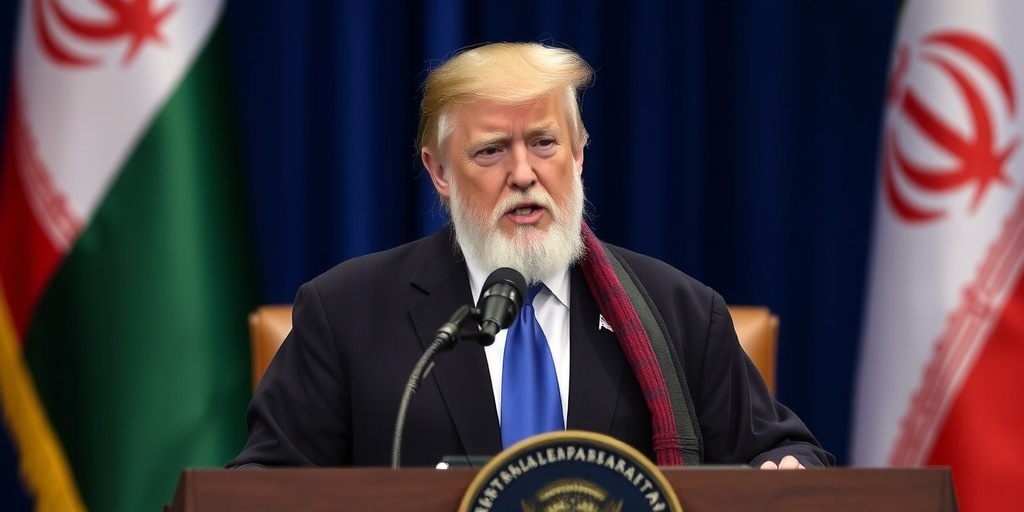Now Reading: Ford Offers Discounts on Vehicles Amid Rising Auto Tariffs
-
01
Ford Offers Discounts on Vehicles Amid Rising Auto Tariffs
Ford Offers Discounts on Vehicles Amid Rising Auto Tariffs

Ford Motor Company Announces Price Reductions Amid Import Tariffs
In a significant move to counteract the impact of President Trump’s recently implemented tariffs on imported vehicles, Ford Motor Company announced on Thursday that it will be lowering prices on most of its vehicles to match the employee pricing. This strategic decision aims to stimulate sales during a time when the automotive market is expected to face a downturn due to the new tariffs.
The tariffs, which went into effect on Thursday, impose a substantial 25 percent duty on vehicles imported from various countries, including Mexico, Canada, Japan, and Germany, among others. Industry analysts predict that these tariffs will likely lead to an increase in the prices of new cars and trucks, potentially dampening consumer demand and significantly reshaping market dynamics. Importantly, nearly half of the vehicles sold in the United States each year are produced internationally, with Mexico being the leading source of imported cars, followed closely by Canada. For over thirty years, the U.S., Canada, and Mexico have operated under a free-trade agreement that has allowed automakers to seamlessly transport parts and vehicles across borders.
In light of these changes, Ford has initiated a program titled “From America, for America.” By aligning consumer prices with the prices charged to employees, Ford aims to alleviate what has become an increasingly large inventory of unsold vehicles. The company has faced challenges with inventory management, having reported a surplus of vehicles in February. Data from Cox Automotive, a reputable research firm, indicated that Ford had more inventory as measured by the number of days required to sell all vehicles than all but three other automotive brands, specifically Jaguar, Mini, and Dodge.
The discounts announced by Ford will apply to all new 2024 and 2025 vehicles, with a few exceptions. Specialty versions of their Bronco sport-utility vehicle, the iconic Mustang sports car, Super Duty models of the F-Series pickups, and several other specific models will not be included in this pricing initiative. Rob Kaffl, Ford’s Director of U.S. Sales and Dealer Relations, emphasized the company’s commitment to consumer affordability, stating, “Consumers will pay what we pay.” This statement underscores the automaker’s effort to maintain competitive pricing in a challenging market environment.
Additionally, Ford is extending its promotional offer for customers purchasing new electric models. This initiative includes a complimentary home charger and the cost of installation, which will now be available until June 30. The extension of this incentive program highlights Ford’s commitment to promoting its electric vehicle lineup, aligning with industry trends pushing for greater adoption of environmentally friendly vehicles.
As of the end of March, Ford reported an inventory of over 568,000 vehicles, representing an increase of approximately 8 percent compared to the same period the previous year. The growing inventory may necessitate aggressive pricing tactics to maintain sales momentum, especially as the auto industry braces for the ripple effects of the tariffs.
Consumer uncertainty surrounding car prices due to the tariffs could lead to a cautious purchasing climate. Ford’s price adjustment strategy intends to mitigate any potential reduction in consumer interest and demand driven by rising costs amidst a turbulent economic landscape. By making vehicles more accessible through lower pricing, Ford hopes to attract more buyers and maintain a stable sales trajectory despite the pressures introduced by the new import duties.
As the auto market evolves in response to trade policies and shifting consumer preferences, Ford’s initiative may serve as a pivotal moment in the automaker’s approach to pricing and customer engagement. The reaction from consumers and the overall market will be closely monitored in the coming months as Ford implements these new pricing strategies and seeks to accommodate the challenges posed by increased tariffs on imported vehicles.
In summary, Ford’s proactive measures to lower vehicle prices and enhance incentives for electric vehicle buyers reflect an adaptable corporate strategy aimed at sustaining market presence and consumer loyalty in a fluctuating economic environment. The juxtaposition of rising tariffs with Ford’s commitment to affordability may redefine consumer interactions in the automotive sector and set new standards for pricing practices moving forward.
Stay Informed With the Latest & Most Important News
Previous Post
Next Post
-
 01New technology breakthrough has everyone talking right now
01New technology breakthrough has everyone talking right now -
 02Unbelievable life hack everyone needs to try today
02Unbelievable life hack everyone needs to try today -
 03Fascinating discovery found buried deep beneath the ocean
03Fascinating discovery found buried deep beneath the ocean -
 04Man invents genius device that solves everyday problems
04Man invents genius device that solves everyday problems -
 05Shocking discovery that changes what we know forever
05Shocking discovery that changes what we know forever -
 06Internet goes wild over celebrity’s unexpected fashion choice
06Internet goes wild over celebrity’s unexpected fashion choice -
 07Rare animal sighting stuns scientists and wildlife lovers
07Rare animal sighting stuns scientists and wildlife lovers





















